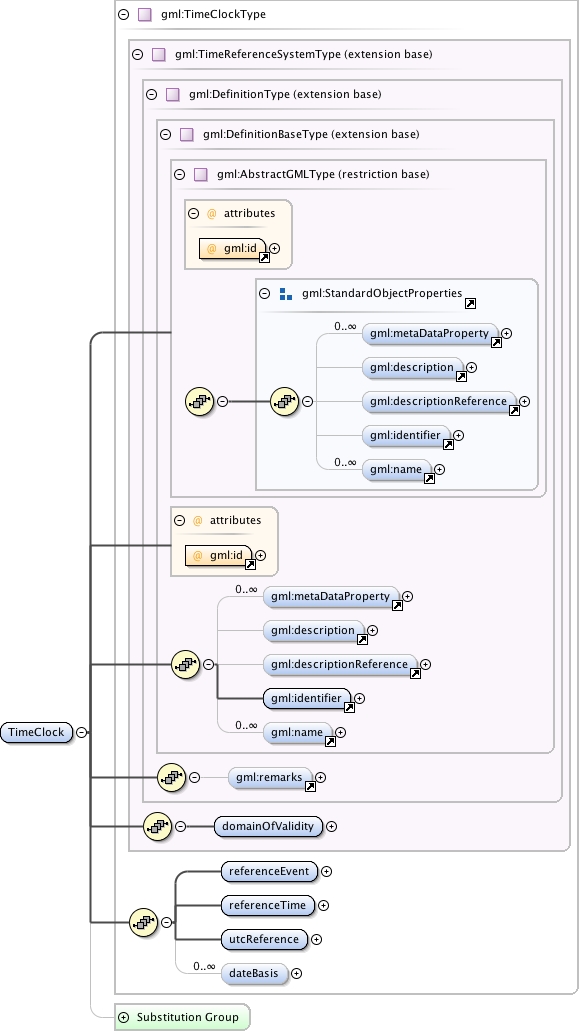| Namespace | http://www.opengis.net/gml/3.2 | |||||||||||||
|
Annotations
|
|
|||||||||||||
|
Diagram
|
 |
|||||||||||||
| Type | gml:TimeClockType | |||||||||||||
| Type hierarchy | ||||||||||||||
|
Properties
|
|
|||||||||||||
|
Used by
|
|
|||||||||||||
| Model | gml:metaDataProperty* , gml:description{0,1} , gml:descriptionReference{0,1} , gml:identifier , gml:name* , gml:remarks{0,1} , gml:domainOfValidity , gml:referenceEvent , gml:referenceTime , gml:utcReference , gml:dateBasis* | |||||||||||||
| Children | gml:dateBasis, gml:description, gml:descriptionReference, gml:domainOfValidity, gml:identifier, gml:metaDataProperty, gml:name, gml:referenceEvent, gml:referenceTime, gml:remarks, gml:utcReference | |||||||||||||
|
Instance
|
|
|||||||||||||
|
Attributes
|
|
|||||||||||||
|
Source
|
|
|||||||||||||
| Schema location | http://schemas.opengis.net/gml/3.2.1/temporalReferenceSystems.xsd |